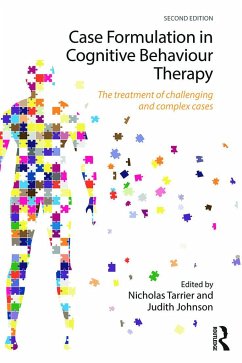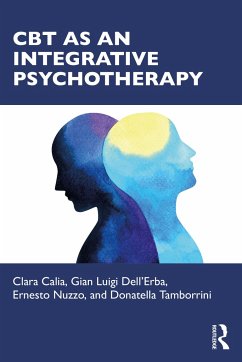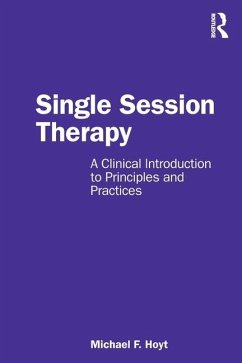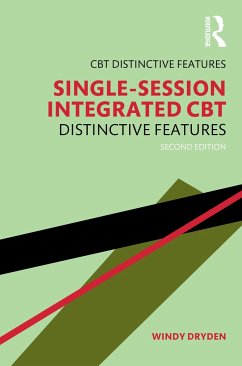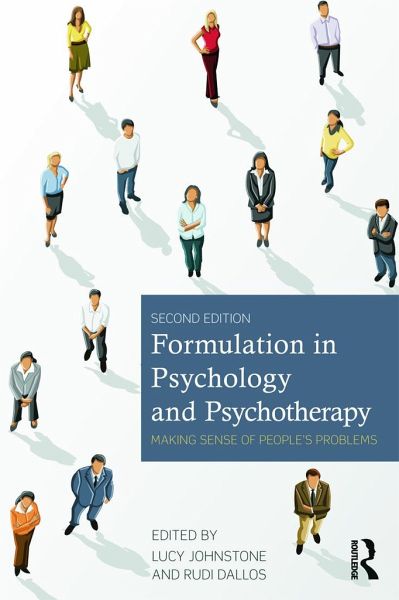
Formulation in Psychology and Psychotherapy
Making sense of people's problems
Versandkostenfrei!
Versandfertig in 6-10 Tagen
43,99 €
inkl. MwSt.
Weitere Ausgaben:

PAYBACK Punkte
22 °P sammeln!
The first edition of Formulation in Psychology and Psychotherapy caught the wave of growing interest in formulation in a clinical context. This completely updated and revised edition summarises recent practice, research, developments and debates while retaining the features that made the first a leading text in the field. It contains new chapters on personal construct formulation, formulation in health settings, and the innovative practice of using formulation in teams.The book sees formulation as a dynamic process which explores personal meaning collaboratively and reflectively, taking accoun...
The first edition of Formulation in Psychology and Psychotherapy caught the wave of growing interest in formulation in a clinical context. This completely updated and revised edition summarises recent practice, research, developments and debates while retaining the features that made the first a leading text in the field. It contains new chapters on personal construct formulation, formulation in health settings, and the innovative practice of using formulation in teams.
The book sees formulation as a dynamic process which explores personal meaning collaboratively and reflectively, taking account of relational and social contexts. Two case studies, one adult and one child, illustrate the use of formulation from the perspectives of expert clinicians from six different theoretical positions. The book encourages the reader to take a constructively critical perspective on the many philosophical, professional and ethical debates raised by the process of formulating people's problems. Among the issues explored are:
The social and political context of formulationFormulation in relation to psychiatric diagnosisThe limitations of formulationControversies and debates about formulation
This readable and comprehensive guide to the field provides a clear, up to date and thought-provoking overview of formulation from a number of perspectives, essential for clinicians working in all areas of mental health and social care, psychology, therapy and counselling.
The book sees formulation as a dynamic process which explores personal meaning collaboratively and reflectively, taking account of relational and social contexts. Two case studies, one adult and one child, illustrate the use of formulation from the perspectives of expert clinicians from six different theoretical positions. The book encourages the reader to take a constructively critical perspective on the many philosophical, professional and ethical debates raised by the process of formulating people's problems. Among the issues explored are:
The social and political context of formulationFormulation in relation to psychiatric diagnosisThe limitations of formulationControversies and debates about formulation
This readable and comprehensive guide to the field provides a clear, up to date and thought-provoking overview of formulation from a number of perspectives, essential for clinicians working in all areas of mental health and social care, psychology, therapy and counselling.





